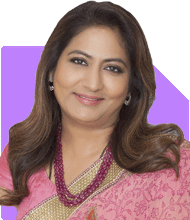
Sir, I am 43 years old living in UAE, with FD of 10L and current MF accumulation of 1.04 Cr and monthly SIP 50K along. I have a 2BHK apartment in Chennai which yields a rent of 8000 Rs and a 3-bedroom house inherited from my parents as gift where we live currently. Along with this we have 2400 Sq ft of land in Chennai and 3000 Sq ft of land in Madurai. I am contributing 69K yearly for the last 11 years in my name until 2035 (expected returns 30Lakhs), 28K yearly in my daughter’s name until 2034 (expected returns 10Lakhs). Addition to this i have icici pru gift long terms with annual payment of 2L Rs on my name (to pay for another 10 years and the return of 16K per month) icici future perfect 1L Rs (to pay for another 10 years). Will receive a sum of 5L Rs from a LIC policy which is getting matured this year and a Term policy of 2 Cr for which I must pay 47K annually and it must be paid for another 22 years and 20 Lakhs worth of gold. I wish to invest in stocks in the next 7 years with an average risk and stop SIP at the age of 50.
I have a 9th grade daughter who wishes to pursue Medicine and a son who is in grade 2. I wish to retire at the age of 50 (7 years from now) and start consulting. Could you please guide me how much corpus I should create in the next 7 years to live a normal lifestyle and ensure to pay the balance ICICI investments and my daughters’ education
regards
Raj
Ans: Current Financial Situation
Raj, you have done a commendable job in managing your finances and building a diversified portfolio. Let's assess your current financial landscape.
Fixed Deposits and Mutual Funds
You have a fixed deposit (FD) of Rs 10 lakhs and a mutual fund (MF) portfolio worth Rs 1.04 crore. You also contribute Rs 50,000 monthly to SIPs. This shows a disciplined approach towards long-term wealth creation.
Real Estate Holdings
You own a 2BHK apartment in Chennai, which generates a rental income of Rs 8,000 per month, and a 3-bedroom house inherited from your parents. Additionally, you possess 2400 sq ft of land in Chennai and 3000 sq ft of land in Madurai.
Insurance and Investments
You have various insurance and investment plans:
Annual contribution of Rs 69,000 for yourself until 2035 (expected returns Rs 30 lakhs).
Annual contribution of Rs 28,000 for your daughter until 2034 (expected returns Rs 10 lakhs).
ICICI Pru Gift Long Term with an annual payment of Rs 2 lakhs, yielding Rs 16,000 monthly after maturity.
ICICI Future Perfect with an annual payment of Rs 1 lakh for another 10 years.
LIC policy maturing this year with a sum assured of Rs 5 lakhs.
Term policy with a cover of Rs 2 crore, annual premium Rs 47,000 for the next 22 years.
Gold worth Rs 20 lakhs.
Family Commitments
Your daughter, currently in 9th grade, aspires to pursue medicine. Your son is in grade 2. You plan to retire at 50 and transition into consulting.
Financial Goals
To ensure a smooth transition into retirement and meet your financial obligations, let's break down your goals:
Retirement Corpus
Daughter's Education
Continuation of Investments
Living Expenses Post-Retirement
Retirement Corpus
You plan to retire in 7 years. To maintain a comfortable lifestyle post-retirement, you need to determine a retirement corpus. This corpus should cover your monthly expenses, healthcare, and unforeseen emergencies.
Daughter's Education
Medical education is expensive. It is crucial to allocate sufficient funds for your daughter's medical education to avoid financial stress later.
Continuation of Investments
You have ongoing investments that require continued funding. Ensuring these are adequately funded until their maturity is essential for maximizing returns.
Living Expenses Post-Retirement
Post-retirement, you will require a steady income to cover living expenses. Your rental income, SIP returns, and maturity proceeds from insurance plans will contribute to this.
Strategy to Achieve Financial Goals
To meet your financial goals efficiently, consider the following strategies:
Increase SIP Contributions
Currently, you invest Rs 50,000 monthly in SIPs. Increasing this amount will help accumulate a larger corpus. Given your current financial stability, consider increasing your SIP contributions by 10-15% annually. This will compound your wealth significantly over the next 7 years.
Diversify Mutual Fund Investments
Review your mutual fund portfolio and diversify across various sectors and market caps. Actively managed funds tend to outperform index funds in the long run due to professional fund management and active stock selection. This can provide better returns and reduce risks.
Surrender Low-Yield Insurance Policies
Your LIC policy maturing this year will yield Rs 5 lakhs. Reinvest this amount in mutual funds for better returns. Assess the ICICI Pru Gift Long Term and ICICI Future Perfect plans. If they are not performing well, consider surrendering them and reinvesting in higher-yield mutual funds. This can maximize returns and provide better growth opportunities for your investments.
Plan for Daughter's Education
Estimate the total cost of your daughter's medical education, including tuition fees, living expenses, and other costs. Create a dedicated education fund using a mix of debt and equity mutual funds. This will ensure safety and growth of the corpus.
Utilize Gold Holdings
Your gold holdings worth Rs 20 lakhs can be a valuable asset. Consider partial liquidation of gold to fund higher-yield investments. Alternatively, keep the gold as a hedge against inflation and as a contingency fund.
Create an Emergency Fund
Ensure you have an emergency fund covering at least 6-12 months of living expenses. This fund should be in a liquid asset class, such as a liquid mutual fund or a high-interest savings account, to access funds readily in case of emergencies.
Investment in Mutual Funds
Instead of investing directly in stocks, mutual funds can provide a balanced approach to achieving your financial goals with moderate risk. Here are the benefits:
Professional Management: Mutual funds are managed by professional fund managers who have the expertise to make informed investment decisions.
Diversification: Mutual funds provide diversification across various sectors and asset classes, reducing overall risk.
Liquidity: Mutual funds offer liquidity, allowing you to redeem your investments as needed.
Tax Efficiency: Equity mutual funds held for more than a year qualify for long-term capital gains tax benefits.
Increase SIP Contributions in Mutual Funds
Currently, you invest Rs 50,000 monthly in SIPs. Increasing this amount will help accumulate a larger corpus. Given your current financial stability, consider increasing your SIP contributions by 10-15% annually. This will compound your wealth significantly over the next 7 years.
Diversify Mutual Fund Investments
Review your mutual fund portfolio and diversify across various sectors and market caps. Actively managed funds tend to outperform index funds in the long run due to professional fund management and active stock selection. This can provide better returns and reduce risks.
Corpus Calculation for Retirement
To estimate the corpus required for retirement, consider the following:
Monthly Living Expenses: Calculate your current monthly expenses and account for inflation.
Healthcare Costs: Factor in healthcare costs, which tend to rise with age.
Contingency Fund: Include a contingency fund for unforeseen expenses.
Desired Lifestyle: Consider the lifestyle you wish to maintain post-retirement.
Monthly Living Expenses
Assume your current monthly expenses are Rs 50,000. Accounting for inflation at 6%, these expenses will rise over the next 7 years.
Healthcare Costs
Healthcare costs can be substantial post-retirement. Ensure you have comprehensive health insurance and allocate a part of your corpus towards healthcare.
Contingency Fund
Set aside at least 10% of your retirement corpus for emergencies. This ensures financial security during unforeseen circumstances.
Desired Lifestyle
Factor in any lifestyle changes you wish to make post-retirement, such as travel, hobbies, or relocation.
Final Insights
Raj, your current financial situation is strong, with a diversified portfolio and substantial assets. To ensure a comfortable retirement and meet your financial goals, focus on increasing SIP contributions, diversifying mutual fund investments, and planning adequately for your daughter's education. Reviewing insurance policies and reallocating funds to higher-yield investments will optimize your returns. Investing in mutual funds can provide balanced growth and reduce risk, ensuring financial security post-retirement.
Building a robust retirement corpus requires careful planning and disciplined investing. With the right strategies, you can achieve your financial goals and enjoy a comfortable retirement while ensuring your family's financial security.
Best Regards,
K. Ramalingam, MBA, CFP,
Chief Financial Planner,
www.holisticinvestment.in



























